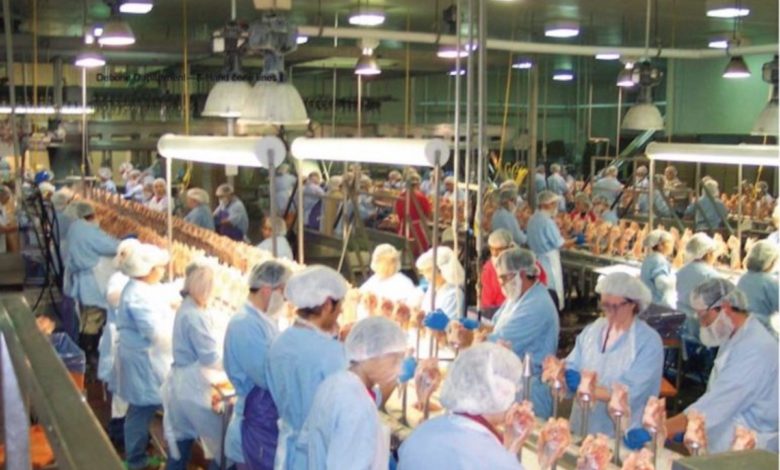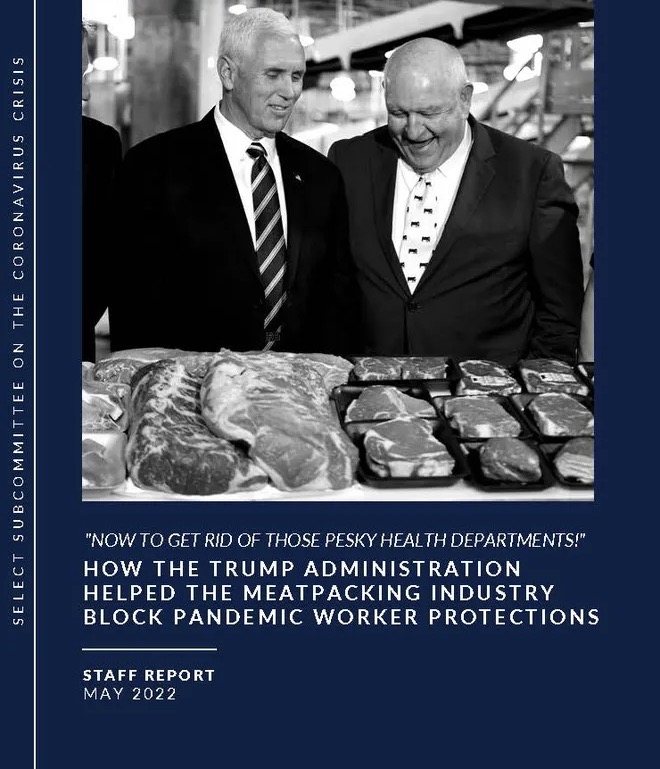
At the White House’s virtual Global COVID-19 Summit on May 12, Joe Biden acknowledged that the country has suffered one million deaths since the start of the pandemic. He spoke of: “One million empty chairs around the family dinner table. Each irreplaceable losses. Each leaving behind a family, a community, forever changed because of this pandemic.”
Biden’s unavoidable official acknowledgement and generic words of collective grief sidestep questions of responsibility and just how this ongoing suffering and loss have been allowed to happen.
The U.S. death toll almost certainly passed one million well before May 12, as chaotic tracking of numbers, non-existent contact tracing, and a broken public health system have made it impossible to fully know the extent of devastation. Because both political parties and corporate media are eager to move on and get back to “normal” business, there may never be a full public accounting. People directly responsible for COVID deaths in this profit-driven system may never face justice.
‘Getting rid of pesky health departments’
The public got a glimpse of some of those crimes against workers in a report released May 12 by the House Select Subcommittee on the Coronavirus Crisis. The subcommittee staff report entitled, “‘Now to Get Rid of Those Pesky Health Departments!’: How the Trump Administration Helped the Meatpacking Industry Block Pandemic Worker Protections,” takes its title from a quote attributed to an industry lobbyist.

This report documents collusion between meatpacking industry officials, the U.S. Department of Agriculture, the Occupational Safety and Health Administration and the Trump administration in the early months of the pandemic to keep meatpacking plants open in extremely unsafe conditions with the false claim that closing the plants or making them safe would create a national meat shortage.
This effort to maximize profits led to the deaths of at least 269 workers in that industry. It also played a significant role in early community spread of the virus, with meatpacking plants driving so much community spread that they were associated with 236,000 to 310,000 coronavirus cases — six to eight percent of all U.S. coronavirus cases— and 4,300 to 5,200 coronavirus deaths.
The report is based on review of 151,000 pages of documents and calls with meatpacking workers union representatives, former USDA and OSHA officials, and state and local health authorities. Companies cited in the report included Tyson, JBS, Smithfield, Cargill and National Beef
The report states that, “In an attempt to justify operating meatpacking plants under dangerous conditions, Smithfield and Tyson warned that reduced operations and worker absenteeism would cause an imminent meat shortage, but these fears were baseless.”
Meatpacking workers, who are predominantly Black, Latino, and immigrant, are at particularly high risk of contracting COVID. They endure repetitive, high-speed work, done while standing shoulder-to-shoulder for long hours under dangerous conditions. As was feared, this led to rapid spread of the virus.
AFL-CIO call for emergency standards was ignored
In March 2020, the AFL-CIO, which represents 2.5 million workers, demanded that OSHA issue an Emergency Temporary Standard to protect all workers at potential risk of occupational exposure to COVID. This would have required employers to assess workplace-specific risks, implement controls to reduce risks, develop protocols and training, and develop pandemic plans with workers engaged in each process.
Trump’s Labor Secretary Eugene Scalia refused to invoke that power to protect workers. Instead of enforceable standards, OSHA adopted CDC guidelines that called for wearing masks, distancing and having sanitizing stations, but only as suggestions, not as requirements. Responding to company lobbying, the CDC further weakened the language in its guidelines, saying safety measures should be enacted “if feasible.”
Some government officials opposed efforts to weaken worker protections. Dr. Henry Walke, Director of CDC’s Division of Preparedness and Emerging Infections, told the Select Subcommittee that he disagreed with adding qualifiers such as “if feasible,” saying that the revisions adopted language that “undermines the clarity of the guidance itself.”
The industry effort had far-reaching consequences, as noted in the report: “Smithfield’s lethal role in weakening federal meatpacking worker protections was not limited to its own employees.” The company’s lobbying efforts “carried over into shaping CDC/OSHA guidance for all federally-inspected meatpacking plants.”
Trump executive order keeping plants open was written by meatpacking industry
On April 28, 2020, Trump responded to the company concerns by signing an executive order to keep meatpacking plants in operation in spite of the dangers to workers. It stated that closure would “threaten the continued functioning of the national meat and poultry supply chain, undermining critical infrastructure during the national emergency.”
The subcommittee has released emails revealing that the text of Trump’s order had been drafted by Tyson’s legal department with input from other industry sources.
The report charges that company executives were aware of the risks COVID posed to workers. It cites an April 2020 email from a doctor in a hospital near a Cactus, Texas, facility owned by JBS saying, “100% of all COVID-19 patients we have in the hospital are either direct employees or family member[s] of your employees,” and warning that “your employees will get sick and may die if this factory continues to be open.”
The power of political appointees and their ability to block any government officials who sought to protect workers is extensively reported: “Trump political appointees at USDA reportedly excluded career USDA officials from key decision making, did not consult career USDA officials when engaging with state and local health authorities, and used personal devices in communicating with industry groups.”
Government helps bosses coerce workers
The report further states that the companies lobbied to force workers to stay on the job in spite of dangerous conditions. It notes: “Meatpacking companies successfully lobbied USDA officials to advocate for Department of Labor policies that deprived their employees of benefits if they chose to stay home or quit, while also seeking insulation from legal liability if their workers fell ill or died on the job.”
The first months of the pandemic showed that society would collapse if not for the working class. Although politicians may claim to honor workers, the pandemic has shown that business profits are far more important to them than worker safety.
The report notes that the meatpacking companies made huge profits while workers were dying. In 2021, Tyson reported net income of approximately $3 billion. JBS earnings that year were about $4.2 billion.
Warnings to prepare for a pandemic were ignored
ProPublica has reported that since 2006 the government has been warning industry to prepare for the likelihood of a serious pandemic by stockpiling masks and developing plans to space out workers on processing lines. These warnings were ignored in the rush to ever greater profits.
Tyson is a global company with operations in 10 countries on five continents. While the company was fighting to block efforts to protect workers in this country, they moved rapidly to minimize risks to workers in China, where safety standards are enforced. They adopted extensive safety protocols that included reducing production and requiring masks and had the measures in place by mid-February 2020, more than a month before workers fell ill with COVID in U.S. plants.
Joe Biden acknowledged the massive death toll on May 12. He also called on Congress to approve funds for COVID relief. But his actions speak louder than words. Funding and other protections for workers have been cut. Earlier this month he urged Congress to quickly approve tens of billions of dollars in aid for war in Ukraine while also jettisoning funds for COVID relief in this country.
Politicians are always eager to fund war, but after a brief pause to mourn one million COVID deaths, they are ready to move on as if nothing happened.




